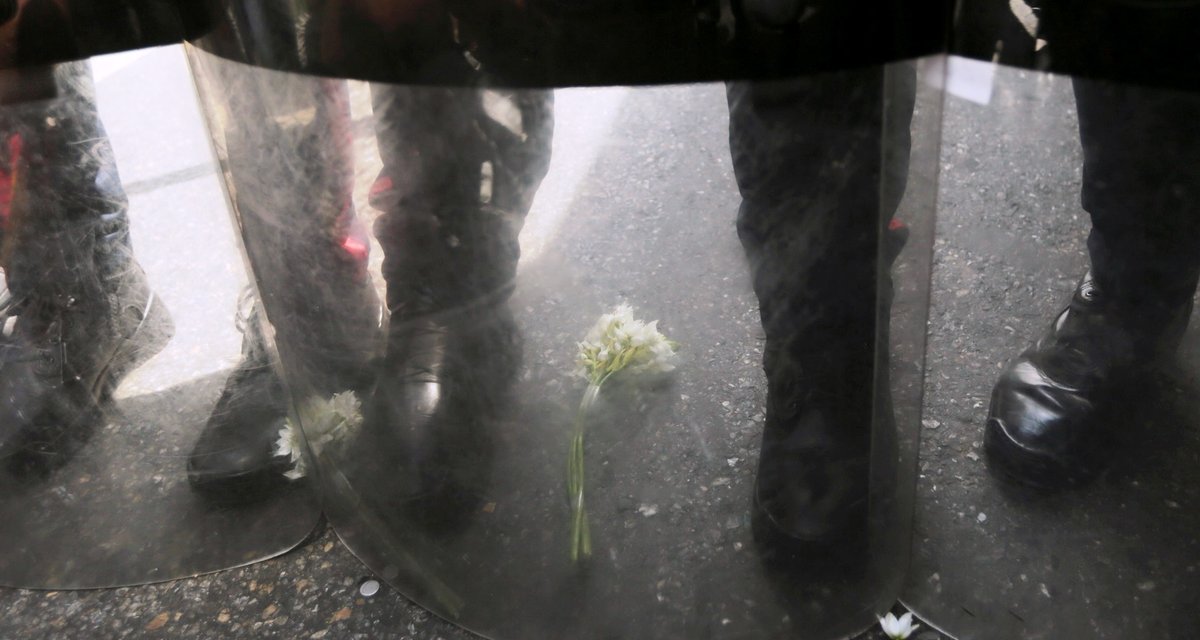At this point, I believe it is not necessary to extend too much on the fact that we are facing an emergency that paralyzed the world, overwhelming health systems in countries that seemed to have an armored care network, compromising national budgets, and unleashing all imaginable fears about Covid-19. In the Venezuelan case, Nicolás Maduro and his team gave a type of response that we are not going to comment on its specific health aspects (its effectiveness in terms of prevention, preparation, containment, and treatment) but only in its political dimension.
The first thing we want to affirm is that faced with Covid-19, the government is not taking extraordinary measures in its approach, nor decisions that have not previously been implemented, except for the Quarantine and the request for IMF funding. Far from understanding the seriousness of the situation and summoning all sectors for a nationwide response to the disease through a sort of national unity government against the Covid-19, its actions have repeated behavior patterns frequent before the pandemic: Its capacity for military action, territorial control from the Special Action Forces (FAES) and colectivos, the repression of public dissent, an imbalance between attention to Caracas concerning the rest of the regions, the opacity of information, and the imposition of a narrative disclosed through hegemonic communication channels. Everything under a leadership linked to the United Socialist Party of Venezuela (PSUV).
The absence of Minister of Health Carlos Alvarado in the official spokesmanship is an example of the prioritization of politics over technical considerations. This omission is not accidental, and it is part of a governance model that permanently underestimates knowledge, prioritizing political fidelity and military obedience. According to common sense, however, a crisis like this would force us to gather the greatest possible expertise from across society.
A second idea, linked to the previous one, is that the Quarantine – again, ignoring its sanitary connotations – constitutes the dreamed model of domination of Chavismo in power, the zenith in its strategy of separating individuals and neutralizing their capacities for autonomous action. The loss of public space, where people meet and become citizens by agreeing on measures for common enjoyment, and the seclusion in the “private” sphere at home are the culmination of a mechanism of oppression based on the impossibility of people for collective action. This is why the response to the Coronavirus is the continuation of the Chavista State’s war against society by other means. Furthermore, it is the reason why it does not ask for the support of the forces of society for a concerted response to the epidemic. The decree of a Quarantine under a democracy, however imperfect, is not the same as under a dictatorial government that uses everything in its power for its perpetuity. In case we did not notice, current circumstances inhibit two tools of resistance to authoritarianism: social mobilization and the attention of the international community. Calling out wrongdoings becomes difficult due to the limitations to the verification of facts and the constant threat of full censorship of social networks.
In “Social Quarantine,” some actors will be further strengthened. The first of these is the Armed Forces, both in the control of the territorial space and for the management and use of resources. The second are the paramilitary organizations, colectivos, which are carrying out patrol and control tasks in different parts of the country, and who will find themselves in a more advantageous position concerning their notion of power after the end of the state of alarm decreed by Maduro, whenever this occurs. A third factor will be Maduro’s entourage, in dispute with other factions of Chavismo and, finally, the entrepreneurial sector with ties or agreements with Miraflores.
If current initiatives prioritize invisibility over containment, it is highly likely that we will never know the true impact of the Coronavirus in our country: the number of screening tests applied, the number of people affected and, finally, the number of deaths. The different official spokespersons will repeat that adequate and timely measures were taken, to claim the impact of the Covid-19 in Venezuela will be more limited or similar to other countries or regions. In the worst-case scenario, the regime started to build a narrative to hold international financial sanctions and their internal lobbyists accountable. This is one of the reasons why they make public communications to the IMF, among all the efforts made to obtain funding. Unless the crisis is of such a magnitude that it gets out of hand, such a scenario is unlikely. Maduro’s authority can be hardened by the situation, and some of the measures seeming exceptional today might be normalized as weeks go by.
As a Venezuelan in voluntary isolation, I deeply hope that the measures taken by the authorities have the highest possible level of effectiveness to contain the disease. Whether they are more or less successful remains to be seen. But if we are sure of anything, it is that the countries that managed to agree and articulate a plan among the diversity of sectors, despite the rush and the gray areas about the virus itself, will not only have better results but emerge from the crisis strengthened as a nation.




